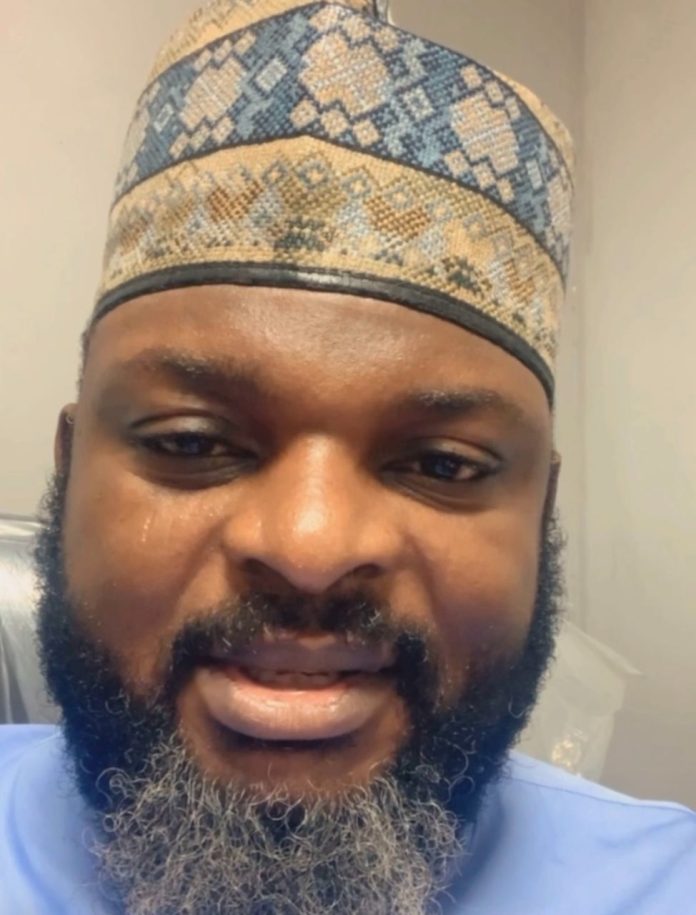By Zahra Ibrahim Ado and Bilkisu Omoefe Nesiama
In recognition of Idris Muhammed Abdullahi, Father of the State Capture Discourse in Nigeria
In Nigeria, corruption has long been viewed as a cancer to development. Yet beneath the surface lies a more complex and insidious threat: state capture. Unlike petty bribery or isolated fraud, state capture is the systematic hijacking of a nation’s policies, institutions, laws, and resources by elite networks. These networks—comprising politicians, bureaucrats, businesses, and at times foreign actors—embed themselves deep within the state’s architecture to serve narrow, private interests at the public’s expense.
Since 2005, Idris Muhammed Abdullahi, a seasoned forensic investigator and anti-corruption expert, has waged a relentless campaign against this phenomenon. Through advocacy, thought leadership, and investigative work, he has become widely regarded as the Father of State Capture Discourse in Nigeria—a title not just earned but lived.
This article dissects Nigeria’s state capture matrix sector by sector, explores how it is sustained, and spotlights Abdullahi’s pioneering role in promoting systemic remedies.
Understanding State Capture: From the Simple to the Complex
Simple state capture occurs when a private actor unduly influences a specific regulation or decision, typically through bribes or favors. It is episodic and traceable.
Example: A contractor bribing an official to alter procurement criteria or secure a license.
Complex state capture involves entrenched networks infiltrating multiple arms of government—legislature, judiciary, security, and public administration—to manipulate outcomes and institutionalize impunity.
Example: A politically connected consortium manipulating petroleum licensing, budget allocations, and judicial rulings to dominate Nigeria’s energy sector.
Sectors Under Siege: How State Capture Operates in Nigeria
1. Oil and Gas
-
Tactics: Opaque oil swap contracts, manipulated joint ventures, unmetered flows, and unremitted royalties.
-
Impact: Over $15 billion lost annually to Illicit Financial Flows (IFFs), per NEITI and Global Financial Integrity.
-
Abdullahi’s Impact: Exposed multinational tax evasion; spearheaded advocacy for Beneficial Ownership Registers in the petroleum sector.
2. Public Procurement & Infrastructure
-
Tactics: Inflated contracts, emergency procurement abuse, insider bidding, shell companies.
-
Impact: Over 60% of national infrastructure projects abandoned or substandard.
-
Abdullahi’s Impact: Championed real-time audits and digitized procurement tracking in partnership with IFIs and civil society.
3. Legislative and Budgetary Capture
-
Tactics: Lobbying to insert self-serving clauses, budget padding, and oversight manipulation.
-
Impact: Enabling monopolies, selective justice, and ballooning public debt through rent-seeking.
-
Abdullahi’s Impact: Organized workshops on legislative accountability; collaborated with the House Committee on Financial Crimes to enhance oversight.
4. Judiciary
-
Tactics: Forum shopping, injunctions to stall trials, and case manipulation.
-
Impact: Erodes public trust and hinders high-profile prosecutions.
-
Abdullahi’s Impact: Advocated for Special Anti-Corruption Courts and digital case management systems.
5. Tax and Revenue System
-
Tactics: Tax waivers, Base Erosion and Profit Shifting (BEPS), transfer pricing abuse.
-
Impact: Tax-to-GDP ratio stagnates at ~10%, well below the 34% OECD average.
-
Abdullahi’s Impact: Coordinated Nigeria’s first national study on IFFs; established the Tax Fraud Section in EFCC and the Special Purpose Investigation unit in FIRS; leads Nigeria’s digital asset taxation strategy.
6. Security and Defense
-
Tactics: Unrecorded arms deals, misuse of security votes, contractor collusion.
-
Impact: Insecurity remains rampant despite N3 trillion budgeted since 2020.
-
Abdullahi’s Impact: Pioneered cross-agency efforts to trace IFFs in defense procurement; fostered FIRS–military collaborations on AML/CFT.
7. Health and Education
-
Tactics: Ghost schools and hospitals, grant diversions, inflated textbook and drug procurements.
-
Impact: Millions out of school; poorly equipped hospitals; stagnation on SDGs 3 and 4.
-
Abdullahi’s Impact: Instituted Corruption Risk Assessments in social sectors and developed subnational transparency scorecards.
Tools of Capture: The Architecture of Entrenchment
-
Legal Loopholes: Exploited inconsistencies delay justice and protect offenders.
-
Crony Appointments: Strategic MDA placements entrench rent-seeking.
-
Data Sabotage: Erased or manual records prevent traceability.
-
Regulatory Arbitrage: Manipulation of agency overlaps to avoid accountability.
-
Elite Complicity: Cross-party shielding of corrupt actors.
The Idris Blueprint for Dismantling State Capture
-
Beneficial Ownership Reforms: Enforce CAC and NEITI disclosure mandates.
-
Digital Transparency Tools: Use blockchain for procurement, AI for risk detection, and centralized e-reporting.
-
Institutional Autonomy: Secure financial independence and fixed tenures for EFCC, ICPC, and the Auditor-General.
-
Whistleblower Protections: Enact and operationalize strong protections aligned with international standards.
-
Citizen Budgeting and Monitoring: Empower community audits via platforms like BudgIT.
-
Legislative & Judicial Capacity Building: Mandatory training in anti-capture mechanisms and financial crimes.
Idris Muhammed Abdullahi: A Crusader for the Nigerian State
Since raising alarm on elite capture in 2005, Idris Muhammed Abdullahi has straddled the worlds of policy, enforcement, and international advocacy. As the Pioneer of the Anti-Corruption Unit at the FIRS, forensic expert, and Head of Anti-Graft & Law Enforcement Liaison, his influence has crossed borders—from Kenya’s Parliament to UN plenaries and Cambridge’s Economic Crime Symposium.
His recognition as a country specialist on IFFs, Beneficial Ownership, Tax Justice, and AML is a testament to his impact. Abdullahi has not only disrupted entrenched corruption networks but has inspired a new generation of reformers committed to reclaiming the Nigerian state.
Conclusion: Breaking the Iron Ring
The fight against state capture is not a mere policy debate—it is a battle for the very foundation of Nigeria’s democracy and dignity. For too long, an invisible iron ring of elite interests has encircled the state, choking transparency, distorting justice, and draining national potential.
But the ring is not unbreakable.
Visionaries like Idris Muhammed Abdullahi have struck the first blows—exposing hidden networks, designing bold reforms, and mobilizing a new generation of watchdogs and warriors for accountability. His crusade is not just a legacy—it is a blueprint.
Now, the challenge lies with Nigeria’s leaders, institutions, and citizens to carry the hammer forward. With courage, vigilance, and collective resolve, we can shatter the iron ring—link by link—until the Nigerian state truly serves its people.
Share your story or advertise with us: Whatsapp: +2347068606071 Email: info@newspotng.com

















